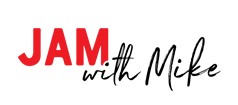Tuesday December 16, 2008 #83
“All changes, even the most longed for, have their melancholy; for what we leave behind us is a part of ourselves; we must die to one life before we can enter another.”
~Anatole France
As promised last week, here is the first of a few JAMs on goal setting, taking action and experiencing fulfillment.
This piece was written by Executive Coach David Krueger, MD and provides a strong case for the mindset necessary for creating and successfully reaching the goals that matter.
Your Story: Old or New?
by David Krueger, MD
People perceive and remember what fits into their personal plot-an internal script of oneself and one’s world. Beliefs and assumptions (inspired by experiences) dictate what you look for and attribute meaning. You always find or create that which validates those beliefs, and ignore, mistrust, disbelieve-or more likely don’t notice-anything that doesn’t fit into that pattern.
Reruns
People repeat behavior, even that which doesn’t work, because it offers security and familiarity. Doing the same thing results in a known outcome; predictability masquerades as effectiveness. When you move beyond a familiar pattern, you may experience anxiety.
Repetition reinstates the security of the familiar, even if the repetition is limiting or frustrating. By opting for repetition, people sabotage invention and imprison creativity. Stuck behavior has stuck consequences. Staying in a rut long enough begins to seem like fate. That outlook can lead to despair. The ultimate question about fixed beliefs or “stuckness” is: Does it work?
Who Wrote This?
Change may be difficult, but it begins with the easy recognition that you are the author of your own life story. Insight, understanding, and theory do not create change. New theories alone will not drive old lived experiences into extinction. Lasting change requires new lived experiences to replace old experiences – you invested a lot of years in the old system, and you will have to practice the new stuff as hard as you practiced the old stuff.
4 BASIC TESTS FOR CHANGE
1. What do you want to change?
2. What do you want to outgrow?
3. What do you want to avoid?
4. What do you want to enhance?
That should be enough to get you thinking. More to come.
